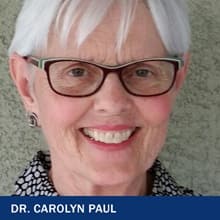What Do Sociologists Do? The Surprising Paths You Can Take

Know before you read
At SNHU, we want to make sure you have the information you need to make decisions about your education and your future—no matter where you choose to go to school. That's why our informational articles may reference careers for which we do not offer academic programs, along with salary data for those careers. Cited projections do not guarantee actual salary or job growth.
Every aspect of our lives is shaped by our relationship with society. Sociologists’ observations about society and how its influences affect us generate important information used to help us relate to one another, whether as consumers, citizens or community members.
Who are we, and why do we do the things we do? How do people relate to one another despite their differences? What lies behind the conflicts that we can’t seem to move past?
Sociologists endeavor to answer questions that perplex us when we look at not only individuals but society as a whole. If you are interested in entering the sociology field, a degree in sociology is an important first step.
What Does a Sociologist Study?

Dr. Carolyn Paul, a sociologist and faculty member at Southern New Hampshire University (SNHU), said that sociology is a field of study that is not well understood and often confused with psychology. “While psychology receives a great deal of attention from the media, sociology does not,” Paul said.
Paul has a PhD in Sociology, a background in social work and an interest in family dynamics. In addition to taking sociology courses that focused on marriage and the family, Paul spent some time as a research associate, studying families with aging relatives at a gerontology center.
A broad social science, sociology is the study of human societies and the wide array of groups existing within them. Sociologists study how society develops and functions on both large and small scales. From national government and cultural norms to local politics and family values, sociologists analyze the who and why of our society.
Paul explained how sociologists look at how the different societal aspects can be compatible or conflict with one another. Think about the relationship between law enforcement and the communities they serve. If an incident occurs, such as what the public views as an excessive use of force by a police officer against a citizen, these two components of society must deal with increasing tensions.
Pew Research Center looked at the social components of how police officers view their jobs versus the public’s perception of the police officer’s role in their community, the incidents that lead to protests and the aftermath. “When components conflict, social problems result, and this is an important aspect of sociological research,” Paul said.
Information learned from this research is used to educate members of the community, provide demographic information to governments, help businesses better market their products and more.
Conducting Sociological Research
The methods sociological researchers use to collect their information are similar to those of other sciences. Beginning with a question or a concept, researchers collect data using social experiments, surveys or participant observation.
To give more substance to their theory and how they plan to collect their information, researchers revisit existing sources available through academic or government research sites.
The observations made by sociologists contribute to many fields, including social services, criminal justice, journalism and even politics.
“Sociology contributes to these fields as a knowledge base on how social and cultural factors impact people in different ways. It also contributes expertise on research methodology and statistical analysis required in these fields,” Paul said.
Find Your Program
Where Might a Sociologist Work?
Both a master's and doctorate in sociology are not currently available at SNHU.
To earn the title of "sociologist," you typically need a master's degree or doctorate in sociology, according to the U.S. Bureau of Labor Statistics (BLS). But careers related to sociology can be found in many different areas, and not all require graduate education.
Some careers you can enter with a sociology degree fall within the following areas:
Healthcare
Efforts are being made to include social aspects of patients’ lives in their health care. Considering social factors such as socioeconomic status when diagnosing physical and mental health issues helps improve treatment plan options for patients.
Earning a bachelor’s degree in sociology with a concentration in community health can give you the opportunity to help the public. Community health workers gather information from people in their service area to address specific concerns that may be present, according to BLS. Examples of focus areas include an increase in substance abuse or the need for diabetes education.
Health education is another role in this field. According to BLS, health educators work in healthcare facilities, nonprofits and public health departments. They strive to inform the community about issues regarding physical and mental wellness.
The job market for health education specialists is expected to expand by 7% between 2022 and 2032, a rate that's faster than the average growth across all professions.*
Justice
Working with courts and correctional facilities, correctional treatment specialists and probation officers help rehabilitate offenders, including juveniles, according to BLS. These positions typically require a bachelor’s degree and probation officers and correctional treatment specialists earned a median salary of $61,800 in 2023, according to BLS.*
Using concepts learned while earning your sociology degree, you’ll be able to understand how to help people become productive members of the community.
Media and Marketing
Marketing professionals use the advice of sociologists to improve the way they present products to the public and how they use branding.
Market research analysts help companies understand their audience, what will sell and how to reach their target demographic, BLS said.
Knowing how consumers interact and respond to social media and advertising campaigns, a cultural marketing specialist can provide insight into how social media accounts would be most effectively used, for instance.
Research
Some of the research-focused careers that sociologists lead, according to Paul, include:
- Building customer and client profiles for target marketing initiatives in marketing firms
- Running demographic studies for government organizations
- Serving as corporate culture advisors in private-sector corporations
“A sociologist at work is focused upon the social and cultural variables which can and have impacted people in their thinking and in their behaviors,” Paul said. There may be an opportunity for an entry-level position in the field, but most graduates with bachelor’s degrees in sociology gain their initial experience by finding jobs in related fields, such as social services, education and public policing, according to BLS.
Social Services
Within the human services sector, caseworkers help run programs in places such as halfway houses, mental health facilities or youth centers. Caseworkers also help in areas such as child services and domestic abuse.
If you go on to earn a master's degree after your bachelor's in sociology, you can unlock more careers in social services. For example, rehabilitation counselors, aid members of the community who struggle with substance abuse, according to BLS.
The community and social services sector is an in-demand field.* According to BLS, an estimated 281,600 positions are expected to become available in these professions through 2032, driven by new job creation and the necessity to fill vacancies.*
Is Sociology a Good Career Path?
Because sociology is as wide-ranging as the groups of people it studies, it's a career path that allows you to follow your interests. You can apply the skills and knowledge you gain in a sociology degree program to help improve healthcare, justice, human services, marketing and beyond.

Dani Chase '23 uses their bachelor's degree in sociology from SNHU to bolster their advocacy work.
"I came back to school to help my community," they said. "In this age of record-breaking amounts of violence and legislation against trans people, I wanted to do something."
Act, they did. While working as an SNHU admission counselor, Chase has dedicated themself to improving the trans student experience, and they have developed and led a university-wide trans inclusion training.
On top of that — and being a full-time student and parent — Chase volunteered on the Human Rights Campaign (HRC) New England's steering committee.
“I know that my degree is going to help me continue my advocacy work, my social justice work, and my activism within SNHU and outside of SNHU," Chase said.
Earning your bachelor’s in sociology can help you create change, too, and impact the lives of people in the community.
*Cited job growth projections may not reflect local and/or short-term economic or job conditions and do not guarantee actual job growth. Actual salaries and/or earning potential may be the result of a combination of factors including, but not limited to: years of experience, industry of employment, geographic location, and worker skill.
Ashley Wallis is an Army veteran and writer with a bachelor's in English language and literature from SNHU. She is currently living in the Denver area. Find her on Twitter @AshDWallis.
Explore more content like this article

SNHU Spotlight: Carlene Estigoy, BA in Psychology Grad

What Can You Do With a Homeland Security Degree?

A List of Helping Professions: Big Hearts, Big Opportunities
About Southern New Hampshire University

SNHU is a nonprofit, accredited university with a mission to make high-quality education more accessible and affordable for everyone.
Founded in 1932, and online since 1995, we’ve helped countless students reach their goals with flexible, career-focused programs. Our 300-acre campus in Manchester, NH is home to over 3,000 students, and we serve over 135,000 students online. Visit our about SNHU page to learn more about our mission, accreditations, leadership team, national recognitions and awards.

